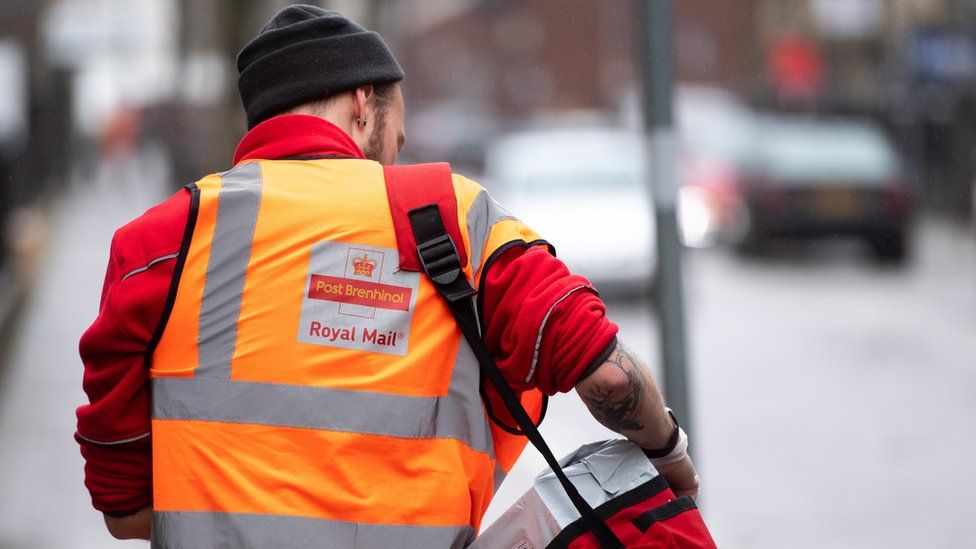ARTICLE AD BOX
 Image source, Getty Images
Image source, Getty Images
By Ben King
Business reporter, BBC News
Postal workers are set to hold a series of strikes, delaying letter and parcel deliveries in the run-up to Christmas.
About 115,000 members of the Communication Workers Union (CWU) are taking part in the dispute with Royal Mail.
When are the strikes?
A 48-hour strike affecting the discount shopping day known as Black Friday took place on 24 and 25 November.
Further action will follow on 30 November and 1 December.
Another wave of strikes is planned for 9, 11, 14, 15, 23 and 24 December - some of the busiest days for pre-Christmas deliveries.
Postal workers belonging to the CWU voted overwhelmingly in favour of strikes on 19 July, and first took action on 26 August.
How will they affect deliveries?
On strike days the Royal Mail says it will not be able to deliver first and second class letters.
However, it will deliver as many parcels and Special Delivery letters as possible.
Priority will be given to prescriptions and Covid test kits where possible.
The guarantees on Special Delivery Guaranteed items will be suspended the day before the strike.
People will not be able to claim compensation for late deliveries.
Image source, Getty Images
Royal Mail delivery offices and customer service points will be closed. Letters will not be collected from post boxes.
Royal Mail has hired thousands of agency workers to help process the backlog.
The Post Office is a separate business, and post offices will be open, although some services, such as posting letters, may be affected. Other services such as bill payments and banking will run as normal.
When are the last posting days before Christmas?
The last posting days to be sure of a delivery before Christmas are currently 19 December for 2nd class and 21 December for 1st class.
However Royal Mail, may bring those dates forward if the strikes beginning 9 December are confirmed.
Why are Royal Mail workers going on strike?
The action is over pay and conditions. It has already inflicted millions of pounds of losses on Royal Mail.
Median pay at Royal Mail is £32,465 a year and the average pay for a postal delivery worker is £25,777.
Royal Mail has offered a pay deal which it says is worth up to 9% over 18 months.
However, this is below the current rate at which prices are rising - 11.1%.
The CWU wants a higher pay offer. It is also objecting to proposed changes to working conditions, such as ending a number of allowances and introduction of compulsory working on Sundays.
What does Royal Mail say?
Royal Mail is moving from its traditional business of delivering letters, which is no longer profitable, to the fast-growing world of parcel deliveries.
It faces stiff competition from other couriers, which give their workers less generous pay and benefits.
The company says it is losing around a million pounds a day, and cannot afford to give its workers a higher pay rise.
It says strikes have added £100m to the losses, and has announced plans to cut up to 10,000 jobs.
It has improved its offer to workers, including more generous redundancy terms and a profit-sharing scheme.
On 24 November the company said it had made its "best and final offer" and accused the union of "holding Christmas to ransom".
Image source, Getty Images
Image caption,Postal workers and strike action protesters outside the Mount Pleasant Royal Mail sorting office
Who owns Royal Mail?
Royal Mail was owned by the government until 2013, when it was privatised.
Shares were sold to financial institutions and private individuals, with 10% reserved for Royal Mail employees.
About 6% of the company is owned by employees today.

 2 years ago
39
2 years ago
39








 English (US) ·
English (US) ·